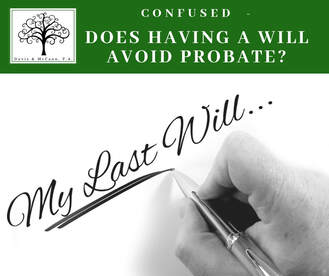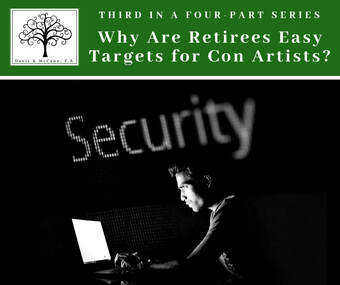 Q: What happens when you own property with someone and the co-owner dies? A: The answer depends on how the property is titled. For Kansas residents, here’s the short and sweet version of how property will transfer if a co-owner dies: Tenancy in Common: If the owners are “tenants in common”, the deceased owner’s interest will transfer according to his/her estate plan, or intestacy laws should he/she fail to make a plan. The surviving owner(s) will not obtain the decedent’s interest unless they receive it under his/her estate. The surviving owner will continue to own the same percentage of property, but they may end up sharing the property ownership with a new co-owner(s) after the decedent’s estate is settled. Joint Tenancy: If the property is owned as “joint tenants with rights of survivorship and not as tenants in common” and one of the owners dies, the deceased person's interest transfers to the surviving joint tenant. For the surviving owner to obtain clear title, her/she must file an original death certificate of the decedent with the Register  If the probate process confuses you, you’re in good company. Here are some common misconceptions surrounding probate: 1. If you have a Will, your family will not have to go through a probate. Not true! In fact, if you do Will-based planning, you are planning for a probate. This means your estate will go through a court process, open to public examination, before your beneficiaries will receive their inheritance. According to a 2018 EstateExec survey, on average it takes almost 16 months to settle a U. S. estate. That’s a significant wait time for beneficiaries to receive the assets you intended them to have. 2. Probate is a simple and speedy process. While this sometimes can be true with uncomplicated estates or low value  In the last three weeks, we discussed the telemarketing and internet scams focused on senior citizens. To learn more about those topics, you can visit: http://www.dclawfirm.net/blog--news/why-are-retirees-easy-targets-for-con-artists-part-one, http://www.dclawfirm.net/blog--news/why-are-retirees-easy-targets-for-con-artists-part-two and http://www.dclawfirm.net/blog--news/why-are-retirees-easy-targets-for-con-artists-part-three. Today, we begin the final part in our four (4) part series on elderly financial scams. In this article, we’ll be discussing mail fraud, home repair fraud and professional fraud. MAIL FRAUD: Caregivers can help monitor loved ones’ mail for potential mail fraud. Stacks of unsolicited mail with various offers for money or prizes is a quick indicator that your loved one is being targeted for a scam. Also, if you notice packages of cheap costume jewelry or other “gifts” arriving by mail to your loved one, inquire about the source of the items and the circumstances leading to their receipt. If your loved one has provided confidential personal data, be watchful for unauthorized transactions in their financial accounts and alert their banker to the situation. Review their checkbook entries and look for unusually large withdrawals or checks written to unfamiliar companies. Credit card statements should be checked for any unauthorized charges. It’s also advisable to examine your loved one’s credit rating to  In the last two weeks, we have discussed the dangers associated with scams aimed at seniors. To learn more about those topics, you can visit: http://www.dclawfirm.net/blog--news/why-are-retirees-easy-targets-for-con-artists-part-one and http://www.dclawfirm.net/blog--news/why-are-retirees-easy-targets-for-con-artists-part-two. Today, we begin Part three (3) in our four (4) part series on elderly financial scams by diving into internet and computer scams and what you can do to protect yourself and your loved ones. Senior Citizens have traditionally been less apt to be the subject of Internet scams because of a lack of technological savvy. However, as the Baby Boomers move fully into retirement years, we have seen an increase in the number of Internet scams, due to the group’s advanced comfort with computers. |
NEWS YOU CAN USEDavis & McCann, P. A., Archives
April 2021
Categories
All
|

 RSS Feed
RSS Feed